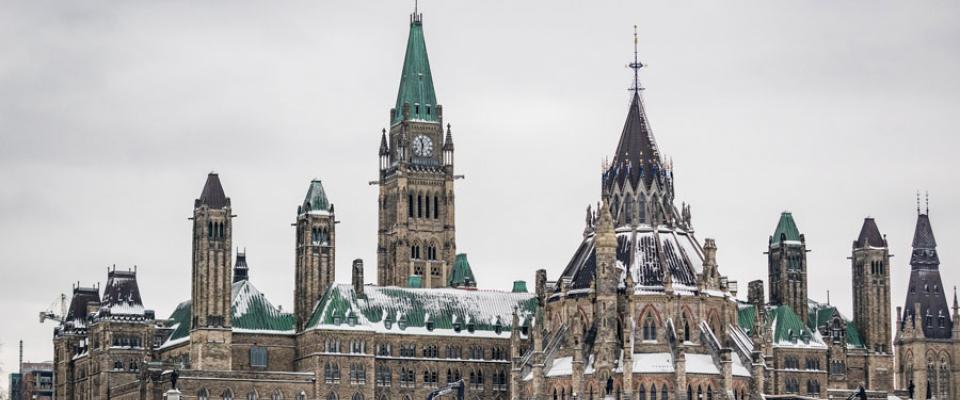New mandate letters issued to federal ministers build on the previous commitments made by the Trudeau government and chart new plans to address the current challenges created by the pandemic. It is imperative however that the government properly funds these commitments in the 2021 budget to build a stronger, more resilient, and equitable Canada.
PSAC welcomes the Liberal government’s commitment to:
- regrow the economy and help those hardest hit by the pandemic;
- reform the Employment Insurance (EI) system to address some of the gaps in coverage;
- improve diversity and equity in the federal public service through legislative and other changes;
- explore flexibility in working arrangements for public service employees, in consultation with unions;
- address systemic racism in government and the justice system;
- further reconciliation with Indigenous peoples;
- implement a national child care system and a national pharmacare plan.
Jobs and economic supports
The government is committing to create over one million jobs and to bring employment back to pre-pandemic levels by investing in the social sector and in infrastructure, increasing training for workers, and introducing incentives for employers to hire and retain workers.
The plan includes specific measures to help those groups that have been most impacted by the pandemic, including racialized communities, women, people with disabilities, and Indigenous peoples. These are encouraging signs that the government is committed to addressing the uneven economic and social impacts of the pandemic.
The government has also committed to modernize the EI system to include people who are self-employed or working in the gig economy. PSAC has been calling on the government to improve EI for years because many workers are not covered, and the benefits are not adequate to meet people’s needs. The details of the government’s plans are not clear, and we will see how serious they are about improving the system in the upcoming federal budget.
Public service
The government promises to “explore enhanced flexibility in working arrangements for federal public service worker” in consultation with public service unions. Flexible working arrangements are beneficial for work-life balance, mental health, and inclusion of people with disabilities, and PSAC welcomes the opportunity to work on a policy with Treasury Board. However, unions and public service workers must be consulted in a meaningful way on any changes.
The government has also committed to take action to increase the representation of equity groups in the public service, including making amendments to the Public Service Employment Act (PSEA) and the Employment Equity Act (EEA). They will also create a Centre on Diversity and Inclusion to examine the barriers faced by marginalized workers.
These changes are long overdue. For decades, PSAC has been calling on the government to improve employment equity and amend the EEA, and to implement anti-racism policies. We are pleased to see that many of the priorities in the mandate letters come from recommendations of the Joint Union/Management Task Force on Diversity and Inclusion in the Public Service and we will continue to advocate for meaningful changes to the legislation and policies.
While the government is promising significant changes for the public service, the Prime Minister did not appoint a new parliamentary secretary responsible for public service renewal in the recent cabinet shuffle. We are disappointed by this decision and left to question who will shepherd these changes and whether this is still a priority for the government.
Addressing reconciliation with Indigenous peoples
The government has stated that they are committed to reconciliation and implementing the recommendations of the Missing and Murdered Indigenous Women and Girls Inquiry and the Truth and Reconciliation Commission. They have also committed to fulfilling their promise to ensure clean water on all First Nations reserves and take other measures to improve services and infrastructure for Indigenous peoples.
Once again, these changes are well overdue. The government has already said they will not meet their earlier deadline to end boil-water advisories on reserves by this spring. The government must act now and stop delaying justice for Indigenous peoples.
Anti-racism in the justice system
The government has committed to introducing legislation to address systemic inequities in the justice system, develop an Indigenous Justice Strategy, and improve training for law enforcement, among other reforms. Unfortunately, there are not enough details yet about what these changes will look like.
Systemic racism in the justice system, especially anti-Black and anti-Indigenous racism, persists at every level. The events of the past year have made it clear that this is a widespread problem, and that significant reforms need to be made to the justice system and policing to create meaningful change. Governments need to address the root causes of the problem rather than simply tinkering around the edges, and we hope to see meaningful changes come out of these commitments.
Child care
The Liberal government continues to promise a national child care system that is universal, affordable, and accessible. The government’s recent fiscal update included a federal child care secretariat to start putting in place a system of publicly funded and publicly managed child care centres, and committed to having a roll-out plan by the 2021 budget. This mandate letter, along with the fiscal update, are good signs that the government is willing to prioritize child care and will move forward with a national child care system in their next budget.
Pharmacare
In the 2018 federal budget, the government announced the creation of an Advisory Council on the Implementation of national pharmacare. The Advisory Council’s report was published in June 2019 and made it clear that Canada needed a universal, single payer pharmacare program. While the mandate letter again makes this a priority, they provide no further details or commitments. We are disappointment with the meagre and slow progress on this file. PSAC will continue to fight for a universal system that aligns with the recommendations of the Advisory Council.
 Member Login
Member Login



